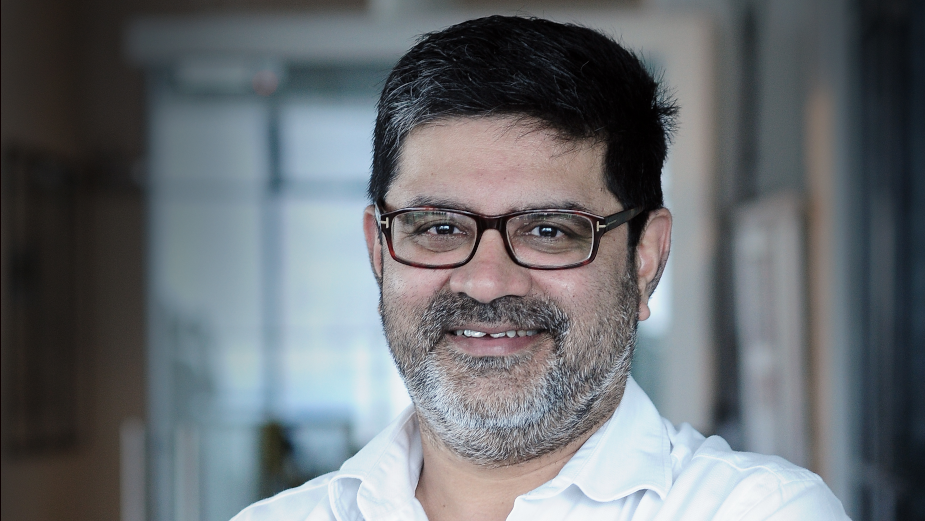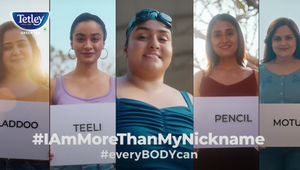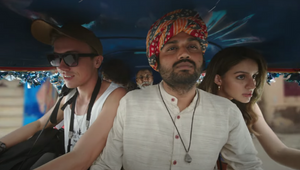
5 Minutes with… Virat Tandon

Virat Tandon is the first to admit that growing up he had no idea a career in advertising existed – and when he did, he was lulled into believing it was an occupation centred around relaxing and looking cool.
When he eventually did realise what it took to work in the creative business he was hooked and his desire to keep growing and working up the ladder has taught him many lessons along the way - including one where he was disappointingly not promoted by a former boss. Now, he is group CEO at MullenLowe Lintas Group in India. Despite feeling apprehensive about the job to begin with, the agency became one of the country’s top 10 agencies within its first 18 months of his arrival.
Virat tells LBB’s Natasha Patel about his career, the best piece of advice he ever received and how by working with one client to adopt a village in India his team have embarked on some life-saving work.
LBB> Did you always want to work in the creative industry growing up?
Virat> In my childhood I didn’t know there was a thing called advertising agencies! A couple of interesting things happened when I was growing up. Firstly my father, who has been a great influence, was into theatre and was also a painter, but he was a professional banker. I am sure that had some sort of influence on me.
The other thing I can remember is that, for some strange reason, I loved the whole idea of being an architect in school. I appeared for an architecture exam at the school I wanted to go to but I just didn’t work hard enough, so I didn’t get in. Then, when I was at college doing my graduation, I did some odd jobs to earn some money on the side and ended up working with a few agencies to do research and that’s something I really enjoyed.
I’m a very good listener and good at observing people so that made me quite interested. I asked myself, “why do these people want to know these things about consumers?” Once I got to know it was really interesting stuff and got me thinking and in that process I also ended up interacting with some agencies. I thought it was a really, really cool environment. I thought, “that doesn’t look like work at all, it looks like they’re all chilling. It was a nice way to make a livin”’. So that’s what drew me.
I decided in college when I was doing my graduation that, for me, advertising is going to be it and then I decided to do my MBA and got into advertising from there.
LBB> So, what was your first role?
Virat> My first job was, strangely, PR. I worked for Hill and Knowlton IPAN for one year. It was exciting but it didn’t allow me to build brands, it was more journalistic, more information heavy. I liked it but I wanted to build brands - something more serious. I then went for interviews with various agencies and got a role with Rediffusion, at that time they were with DYNR. I stayed there for a few years and ended up in Lintas in 2004.
LBB> Growing up do you remember the first advert you ever saw?
Virat> Nothing struck me until I saw the Pepsi launch ad, which was in 1990 and had Remo Fernandes starring in it. It was a very cool mega ad. It spoke to me because I was a college student at that time and it was aimed at college students - and the new India, they called it “the choice of the new generation”. If you look at today it may look jaded but at that time it was ahead of that time. That struck me for the first time, as like a really, really powerful ad.
LBB> Has your career path been a surprise to you?
Virat> Some of it, yes. The first thing is that when you look at an advertising agency from the outside, it looks very cool and easy going. But when you’re on the inside it's really difficult, it's tough to get the work done. It's tough managing clients, it's tough to execute work you have to spend long hours.
LBB> Have you received any advice throughout your career that has stuck with you?
Virat> One very simple advice from a boss was: “If you want to be more senior, you have to clean bigger piles of shit”.
I can never forget that. I used to think that why does work become more difficult as you become more senior. I always thought that life became easier as you became senior. Life always looks rosier when you’re younger. So that has stuck and it made a big difference to me actually because I was expecting it and it comes with the job. The only option you have is whether you dive into it and take it headlong or resist it. There’s no point resisting it because it’s going to come anyway.
LBB> Is there a particular campaign that you’ve worked on that has stood out to you?
Virat> Without a doubt it's ‘Help a child reach 5’ with Lifebuoy. It was one a once in a lifetime journey. It’s like a lovely fairytale the way it all came together. It’s a great memory to have.
LBB> That looks like a really lovely campaign with a very human appeal. What about this stood out to you?
Virat> The ad itself was really based on human appeal, but what I love about it is the purpose. There was a workshop where we were with the client and agency where we looked at Cannes winning ads and there was something from Coke which really brought a lump to your throat and the client, Sameer Singh, said: “That’s sugar water - if you can cry about that, we save lives as a brand”.
I asked Sameer to give us an opportunity to create some work around the life saving work that a brand can do. The best thing was there was no deadline to it because it was something we wanted to do and not something business depended on it. We got a freehand and we came upon this insight that children under the age of five are actually most vulnerable to infection, most children die of repeated infections up to the age of five. After five immunity kicks in and then their body and the system to some extent can look after them.
There are two million children under the age of five that are dying in India. The next big idea was to adopt a village which is the most diarrhoea-death prone village in the world and say we will teach everyone to wash their hands with soap and ensure that nobody dies in that village. We went with that to the client – no script.
We found a village in India in a place called Thesgora and we wanted to adopt it. The team on the agency side and the client side, before and after this campaign the way they started loving this brand, coming to work on it everyday was absolutely different. They felt like they had a big mission, they were not just coming to work to make ads, they were coming to work to save lives. I don’t think I’ve ever felt that way, I’ve worked on a lot of campaigns but I don’t think I’ve had the chance to create that kind of value.
LBB> What has been your biggest career challenge to date?
Virat> Every time the current challenge seems like it’s the biggest one. The very first assignment that I did at Rediffusion was probably the biggest challenge because I was not prepared for it. I did not know what advertising and creating campaigns was all about.
The other big one is the journey at MullenLowe Lintas which we started. All our past forays into second agencies have pretty much failed. It was a little scary that I was in Singapore running global brands for Unilever and I thought if I go into this, is it going to be another one of those experiments that’s going to fail like the previous ones? But I took that challenge and insisted on a particular team that I wanted which I got and I think we had a great time. I never thought I could do new business - I was very bad at it - and this job was all about new business. That worked out pretty well, MullenLintas became one of the top 10 agencies within one and a half years which was very gratifying. The job that I’m doing now is a very big challenge too.
LBB> Tell us about your current role, did you always aim to reach the level of CEO?
Virat> When I started out, the first five to seven years I was very, very ambitious. It mattered to me whether I got promoted or not, if I didn’t get promoted I would say “what have I not done, I should get promoted”. I was really, really ambitious that way. It kind of waned off after a few years as maturity set in.
My boss and close mentor refused to promote me in one of those years when I was obsessed with the idea that every year I should get a promotion. He took me for a walk and said, “listen I know you’ll be disappointed but I’m not going to promote you. I think you need to develop; you need to work on yourself”.
I hated him for the next six months, I don’t think I spoke to him much the following few months. But I understood. I think that was a turning point in my life and I started focussing on stuff that is more real, the real work, the people, the organisation, clients.
LBB> Where do you hope the business goes in the future?
Virat> There’s a big job to do here to really transform. We are in the middle of a lot of digital transformations, not just in our industry but also across the world. That’s really exciting for me, there’s a lot to do and I’m really fortunate to be at a place where I can make an impact. There’s no one else to blame, it's up to me and I want to make the most of it.













